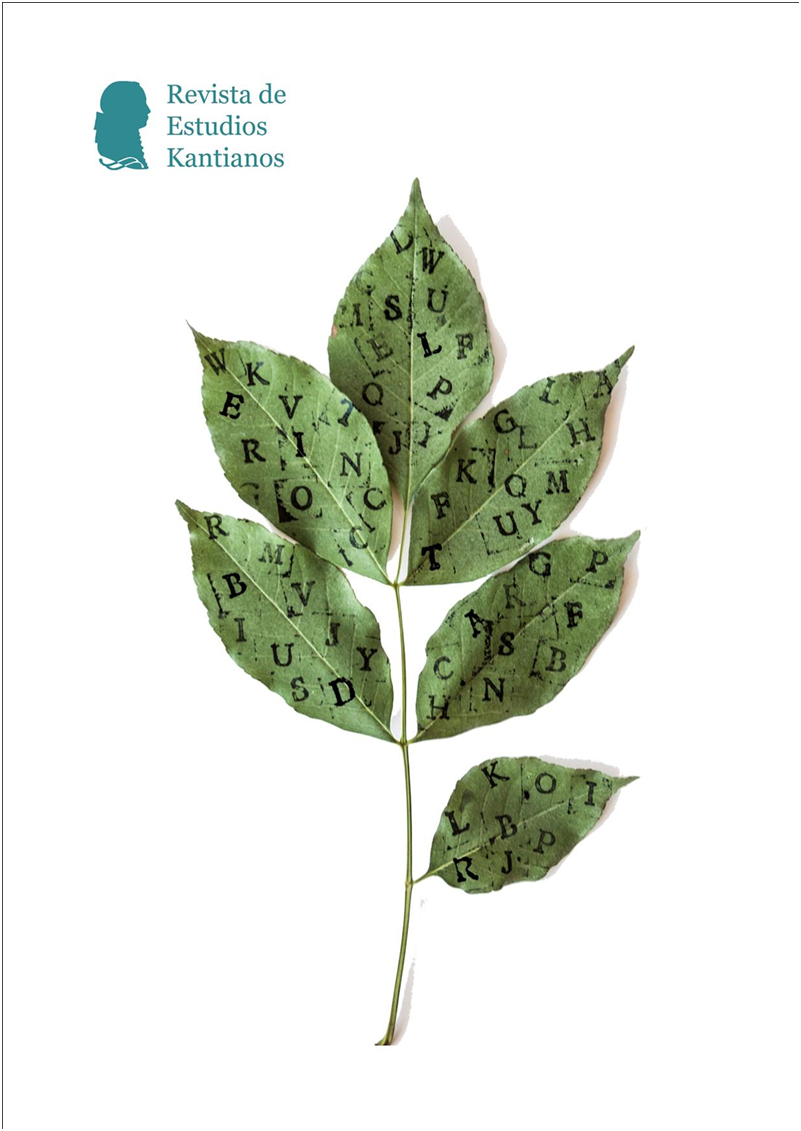L'honneur de la raison
DOI:
https://doi.org/10.7203/REK.8.1.24680Palabras clave:
Kant, mal, raison, antinomie Resumen
Resumen
This article attempts to show that the doctrine of the impossibility of total error (DIET) is one of the main presuppositions of Kant's moral thought and not just of his theoretical thought. I will exhibit how the antinomy of reason is one of the most important motives of Kant's philosophical inquiry and then illustrate my interpretation of radical evil by advocating an interpretation of reason in Kant as a unitary faculty.
 Descargas
Descargas
 Citas
Citas
Allison, H. (1995). Reflections on the Banality of (Radical) Evil. Graduate Faculty Philosophy Journal, 18(2),141-158.
Beck, L. W. (1960). Das Faktum der Vernunft. Société Française de Philosophie, 52.
Bernecker, S. (2006). Kant zur moralische Selbsterkenntis. Kant-Studien, 97(2), 163-183.
Fichte, J. G. (1962). Gesamtausgabe der Bayerischen Akademie der Wissenschaften. Frommann-Holzboog. (GA)
Grenberg, J. (2010). What Is the Enemy of Virtue? En L. Denis (Ed.), Kantʼs Metaphysics of Morals: A Critical Guide (pp. 152-169). Cambridge University Press.
Hinske, N. (1987). La via kantiana alla filosofia trascendentale. Japadre.
Horn, C. (2011). Die menschliche Gattungsnatur: Anlagen zum Guten und Hang zum Bösen. En O. Höffe (Ed.), Die Religion innerhalb der Grenzen der bloßen Vernunft (pp. 43-80). Akademie Verlag.
Kant, I. (1980). Gesammelte Schriften. Akademie-Ausgabe. (1900). Oeuvres philosophiques. Gallimard. (AA)
Miklo’s, V. (2018). Von Kant zu Schelling: Die beiden Wege des Deutschen Idealismus. de Gruyter.
Nabert, J. (1955). Essai sur le mal. PUF.
Papish, L. (2018). Kant on Evil, Self-Deception, and Moral Reform. Oxford Academic.
Pasternack, L. (2014). Kant on Religion within the Boundaries of Mere Reason. Routledge.
Salvetti, F. (2014). Judaisme et christianisme chez Kant. Du respect de la loi à son accomplissement dans l’amour. Cerf.
Sticker, M. (2022). Rationalizing (Vernünfteln). (Elements in the Philosophy of Immanuel Kant). Cambridge University Press.
Vető, M. (2018). Von Kant zu Schelling. Die beiden Wege des Deutschen Idealismus. de Gruyter.
Weil, E. (1970). Problèmes Kantiens. Vrin.
Welsh, M. (2019). Kant über den Selbstbetrug des Bösen. Kant-Studien, 110(1), 49-73.
Willaschek, M. (1991). Die Tat der Vernunft. Zur Bedeutung der Kantischen These vom ‘Factum der Vernunft’. En G. Funke (Ed.), Akten des VII. Internationalen Kant-Kongresses Mainz 1990 (Bd. II.1, pp. 446-456). Bonn.
Wood, A. (2010). Kant and the Intelligibility of Evil. En P. Muchnik et S. Anderson-Gold (Eds.), Kantʼs Anatomy of Evil (pp. 144-172). Cambridge University Press.
Wyrwich, T. (2015). Böses, radikales. En M. Willaschek, J. Stolzenberg, G. Mohr, et S. Bacin, S. (Eds.), Kant-Lexikon (pp. 305-310). de Gruyter.
Publicado
Cómo citar
-
Resumen328
-
.PDF122
-
EPUB87
Número
Sección
Licencia
![]()
Los autores que publican en esta revista están de acuerdo con los siguientes términos:
- Los autores conservan los derechos de autor y garantizan a la revista el derecho de ser la primera publicación del trabajo al igual que licenciado bajo una Creative Commons Attribution License que permite a otros compartir el trabajo con un reconocimiento de la autoría del trabajo y la publicación inicial en esta revista.
- Los autores pueden establecer por separado acuerdos adicionales para la distribución no exclusiva de la versión de la obra publicada en la revista (por ejemplo, situarlo en un repositorio institucional o publicarlo en un libro), con un reconocimiento de su publicación inicial en esta revista.
- Se permite y se anima a los autores a difundir sus trabajos electrónicamente (por ejemplo, en repositorios institucionales o en su propio sitio web) antes y durante el proceso de envío, ya que puede dar lugar a intercambios productivos, así como a una citación más temprana y mayor de los trabajos publicados (Véase The Effect of Open Access) (en inglés).








